
4 min read
How to...Design a Kitchen That Supports Your Wellbeing Part 1
WLLW dives into designing the kitchen, crafting a space for health and connection.
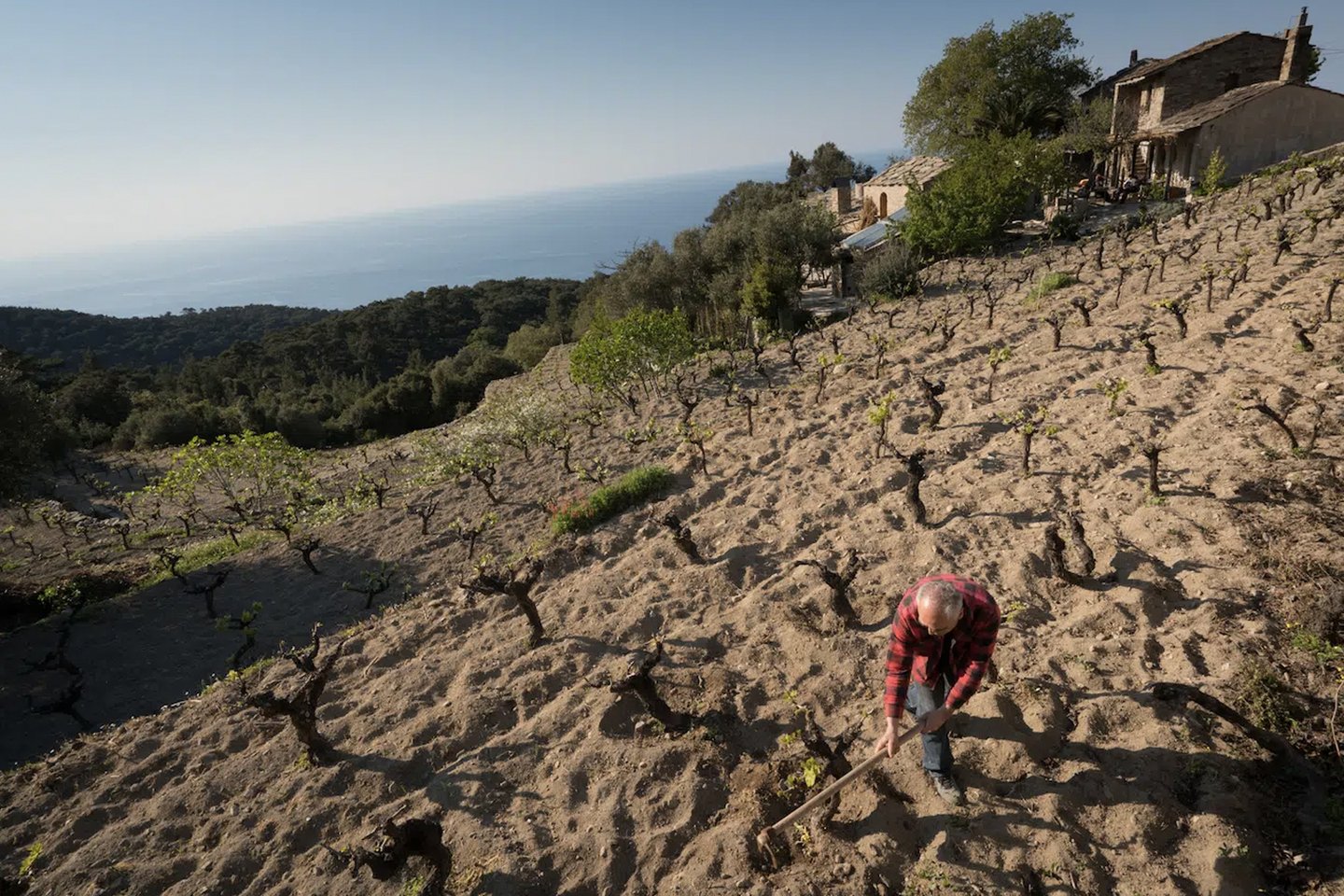
3 min read
WLLW dives into the Blue Zones, exploring how you can incorporate the lifestyle habits of those who live there for a longer, healthier life.
The Greek Island of Ikaria has an association with another, more unexpected kind of blue, beyond the azure waters of the Aegean Sea. Along with Sardinia in Italy, Okinawa in Japan, Nicoya in Costa Rica and Loma Linda in California, Ikaria is a designated ‘Blue Zone’. The term was coined by National Geographic journalist Dan Buettner who traveled to Okinawa to cover the remarkable longevity of the island’s inhabitants. Inspired, he set out to discover the secrets to living a long, healthy life in places around the world which boast the highest number of centenarians. He identified nine lifestyle habits all these regions had in common and went on to describe those areas as Blue Zones.
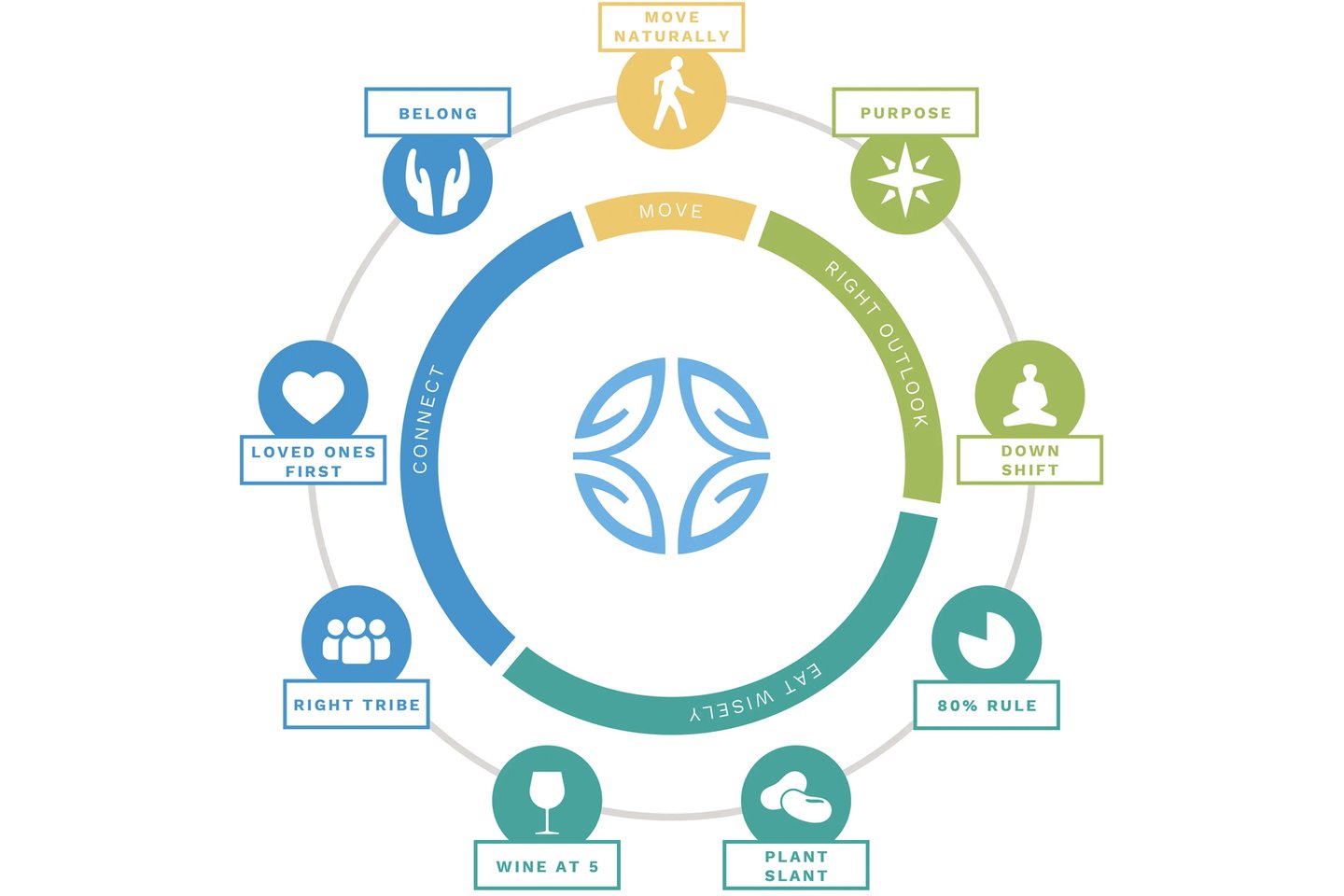
The ‘Power 9’ habits common to these regions include moving naturally, having a purpose, avoiding stress, eating consciously, favoring a plant-based diet, drinking alcohol in moderation, having a sense of belonging, putting loved ones first and surrounding oneself with a supportive community.
These habits are not fleeting changes that can be made short term, their power lies in their ability to promote a healthier life if incorporated over a longer basis. A longer life does not necessarily equate to health, however. Wellbeing is the most important metric for determining quality of life and healthspan, the number of years someone is healthy without a chronic disease, is more important than lifespan, the number of years someone lives from birth until their death. Recent research shows that 80 percent of our longevity is determined by our environment and lifestyle and that our genetics have less of an impact than previously thought. So what can we learn from the habits common to Blue Zones?
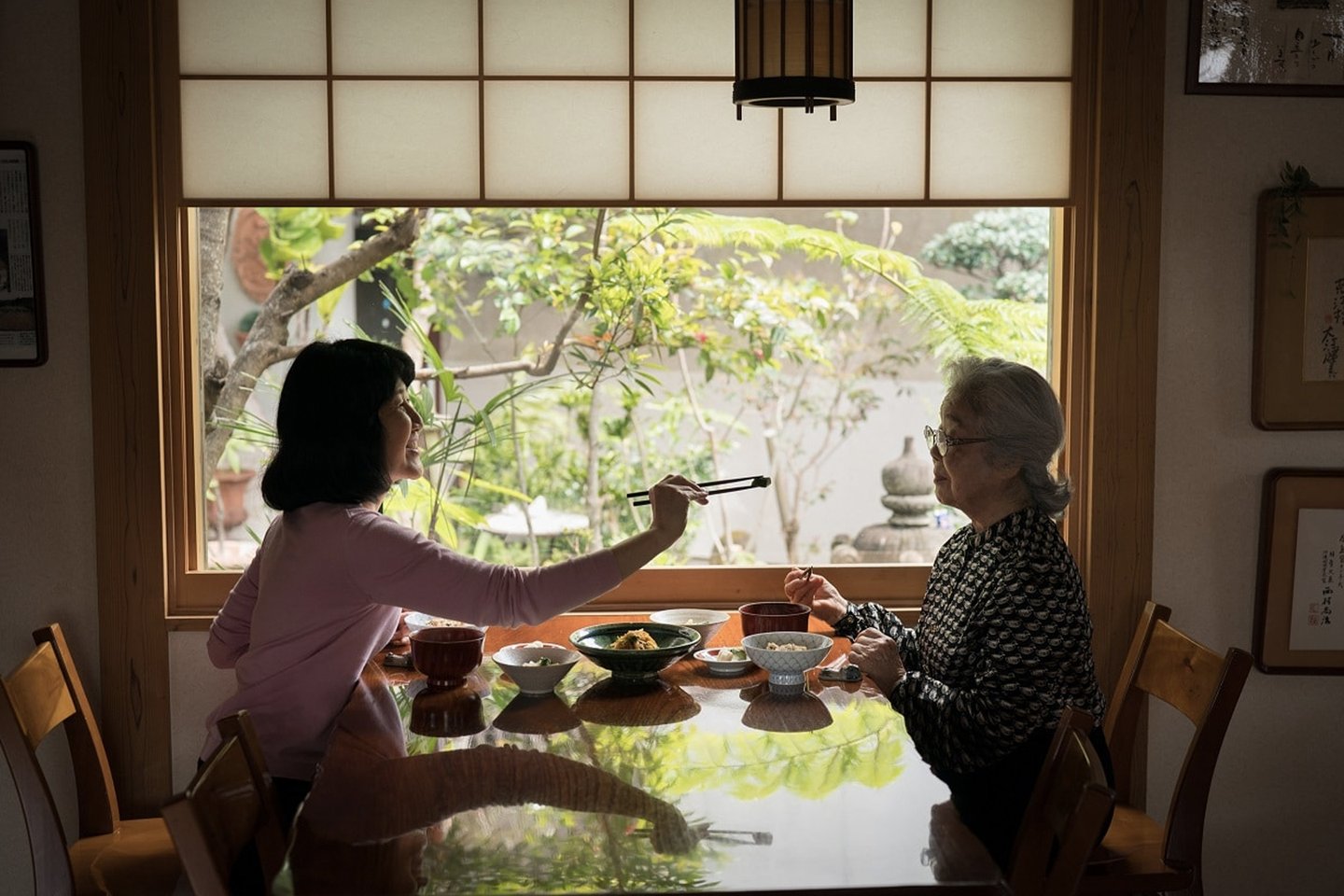
Once called the ‘land of immortals’ Okinawa residents boast significantly lower rates of heart disease, cancer and dementia. They credit their exceptional longevity in part to ‘ikigai’ or the sense of purpose necessary to leading a fulfilled life. Research shows that the feeling of ikigai contributes to a well-balanced secretion of neurotransmitters such as serotonin, dopamine and endorphins, which in turn reduces the feeling of stress.
In Ikaria the Mediterranean diet, rich in healthy fats, whole grains and vegetables, is just one of the reasons why the island’s residents live for so long. Many Ikarians practice fasting as part of the Greek Orthodox faith and research has shown that caloric restriction can lead to a longer lifespan and decreased hypertension.
In his work ‘Sea and Sardinia’ DH Lawrence suggested that, “lemon trees, like Italians, seem to be happiest when they are touching one another.” This is certainly true of Sardinians whose strong family values and respect for their elders lead to lower rates of depression, suicide and stress.
The Costa Rican tenet of ‘plan de vida’ is fundamental to the locals’ zest for life and longevity. In Nicoya the belief that our lives can be enriched by a positive outlook embedded in simplicity has led to a remarkable effect on the health and wellbeing of the residents. As Jorge Vindas, founder of the Nicoya Blue Zone Association, once said, “if they plant an orange tree at 90 they plan on eating the fruit.”
In sunny California the Seventh-day Adventist church community of Loma Linda will likely expect to enjoy ten years more than the average American lifespan. This is credited to their adherence to vegetarianism and eschewment of alcohol and tobacco products.
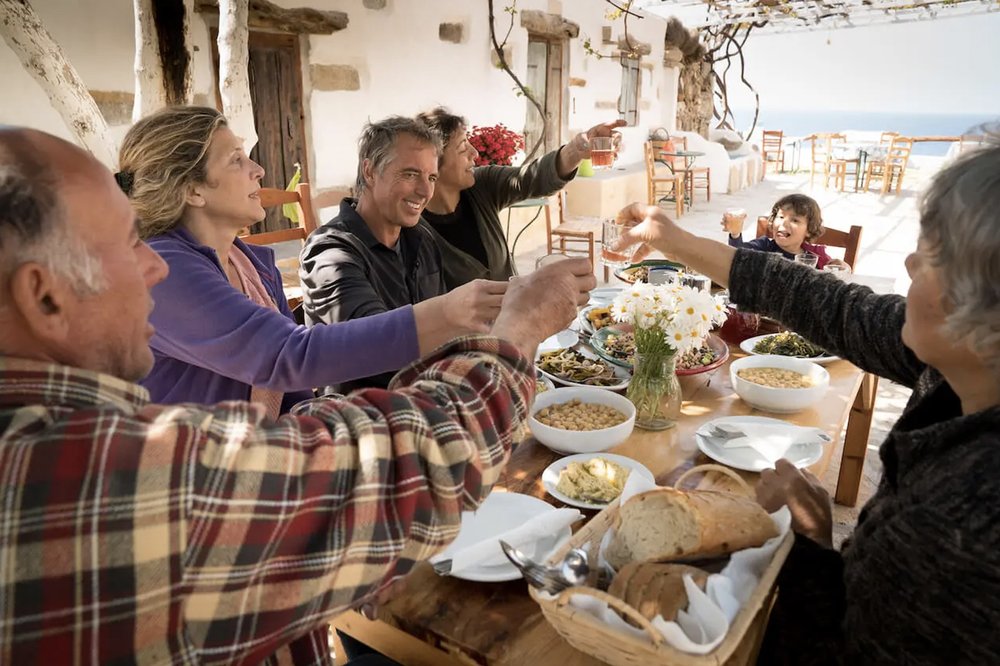
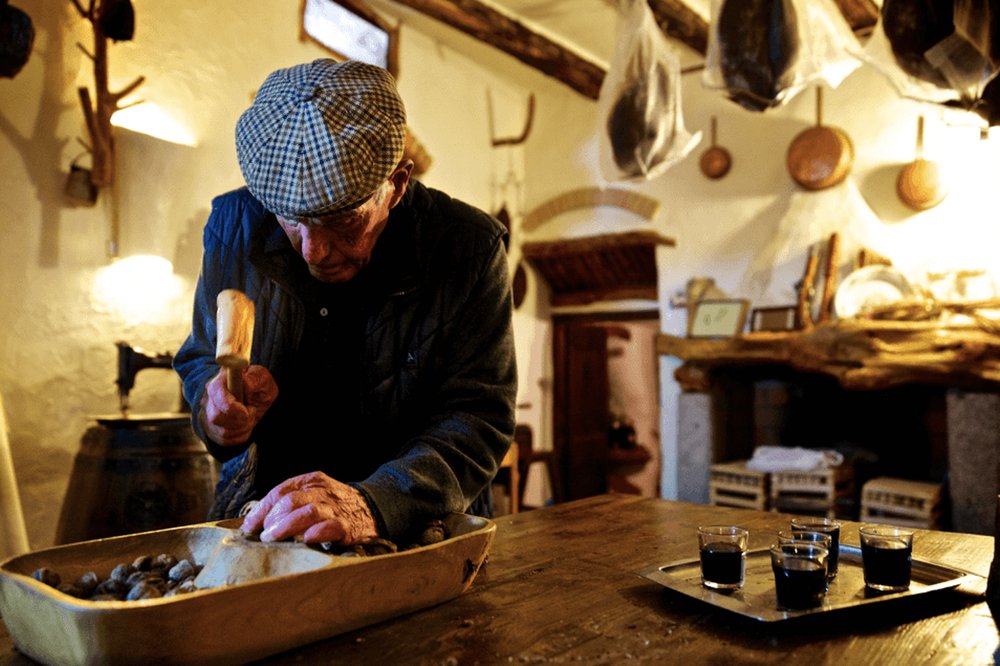
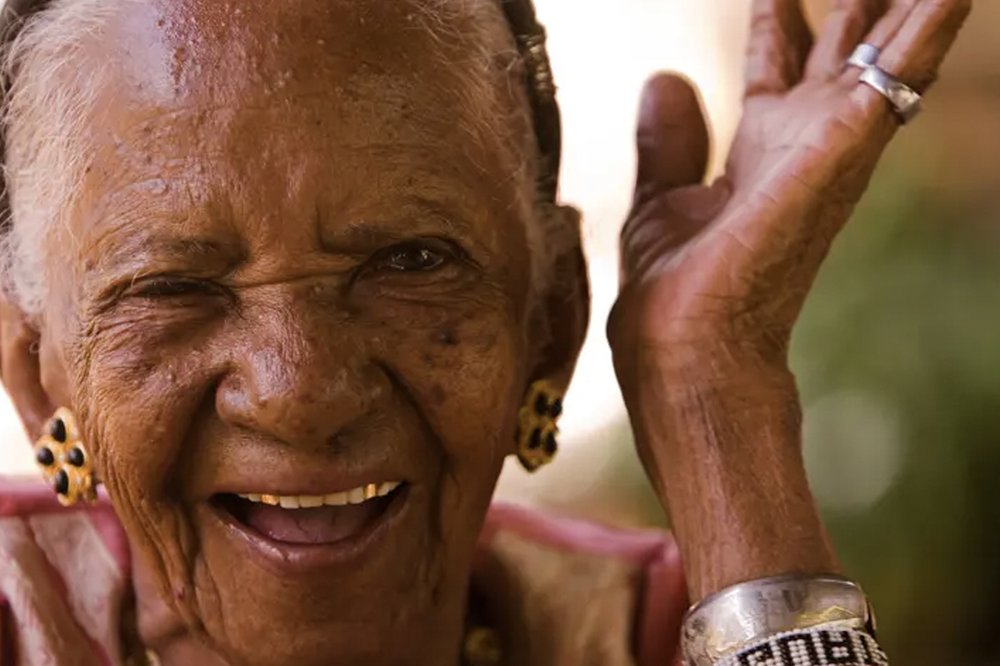
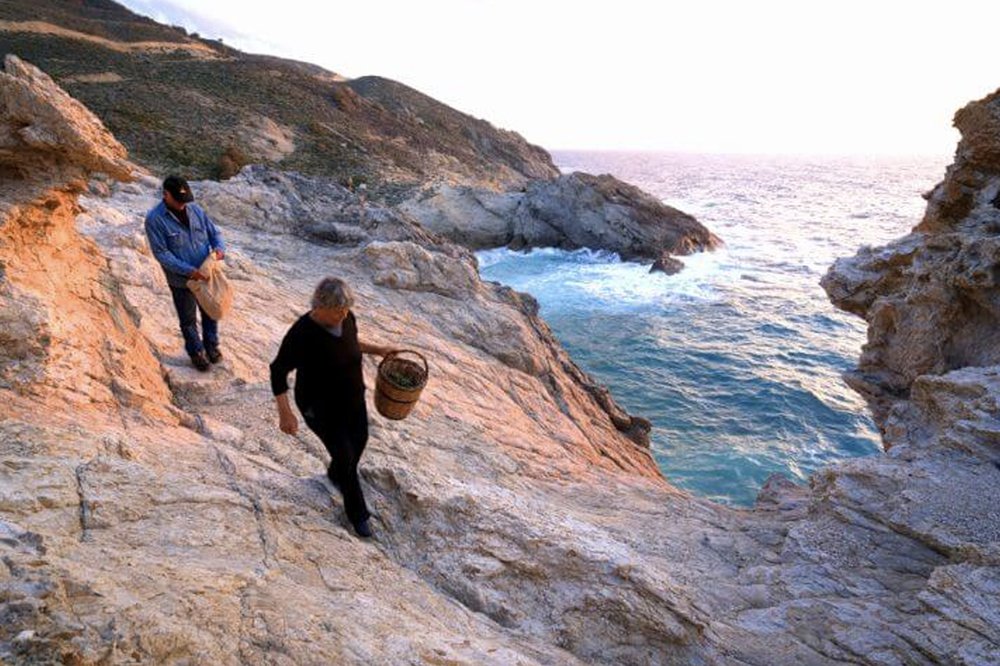
The lessons we can learn from the different Blue Zones are clear. The adoption of a diet rich in a variety of fresh fruits and vegetables, heart-healthy fats and whole grains will lower the risk of chronic diseases such as heart disease, diabetes and certain cancers. Alcohol should only be consumed in moderation. Incorporating movement throughout the day and regular exercise helps maintain cardiovascular health, muscle strength and overall wellbeing. Investing time in building and nurturing relationships can have profound benefits for mental and physical health.
"Wellbeing is the most important metric for determining quality of life and healthspan, the number of years someone is healthy without a chronic disease, is more important than lifespan, the number of years someone lives from birth until their death."
Relaxation techniques such as meditation, prayer or spending time in nature help lower cortisol levels, promote relaxation and improve resilience in the face of challenges. Finding purpose through engaging in activities that align with your personal values fosters a sense of fulfillment and satisfaction. Family cohesion and support can aid emotional wellbeing and longevity. Aging should be embraced as a natural part of life; continued involvement in meaningful activities, lifelong learning and maintaining a sense of purpose contribute to healthy aging.
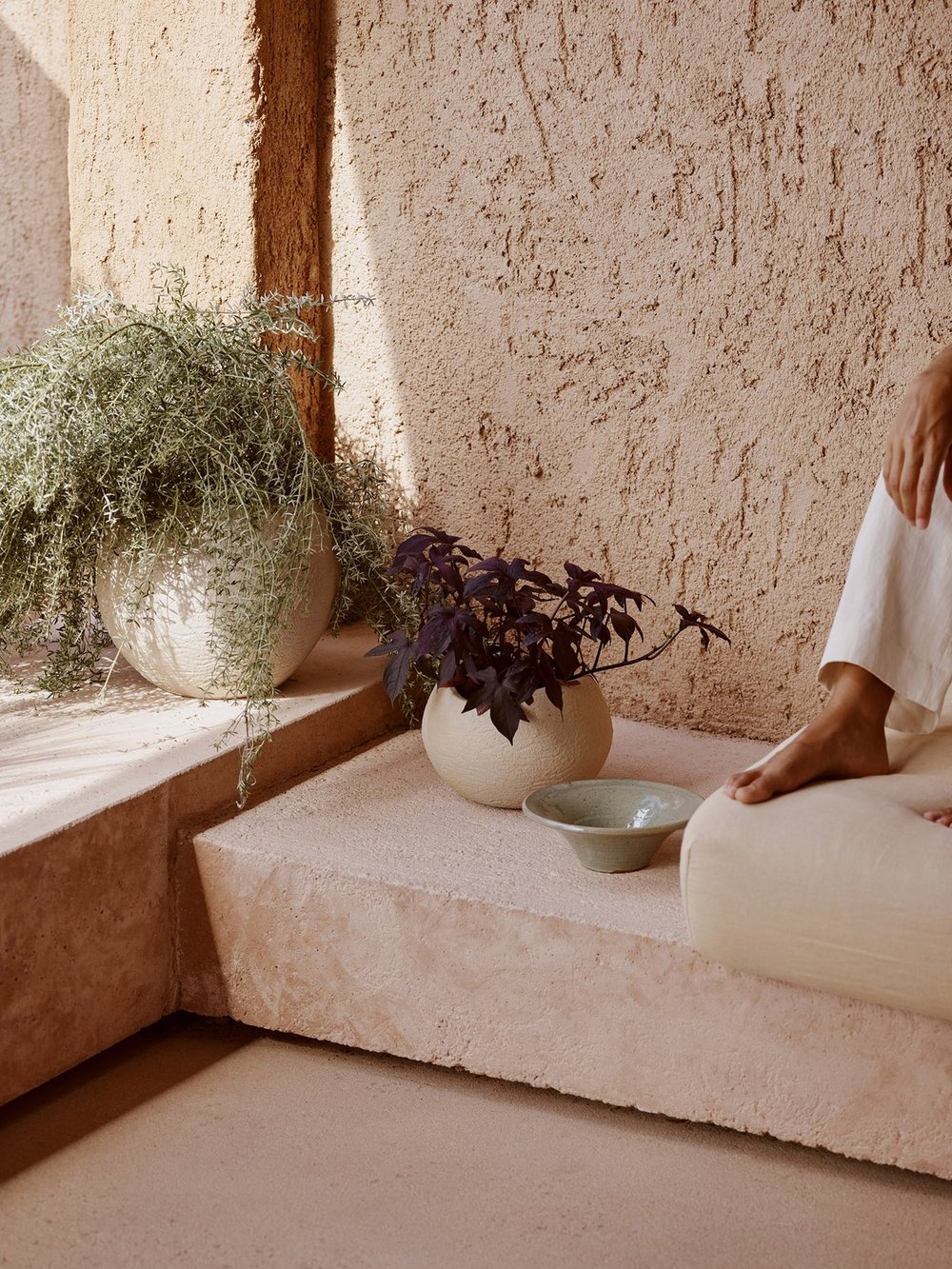
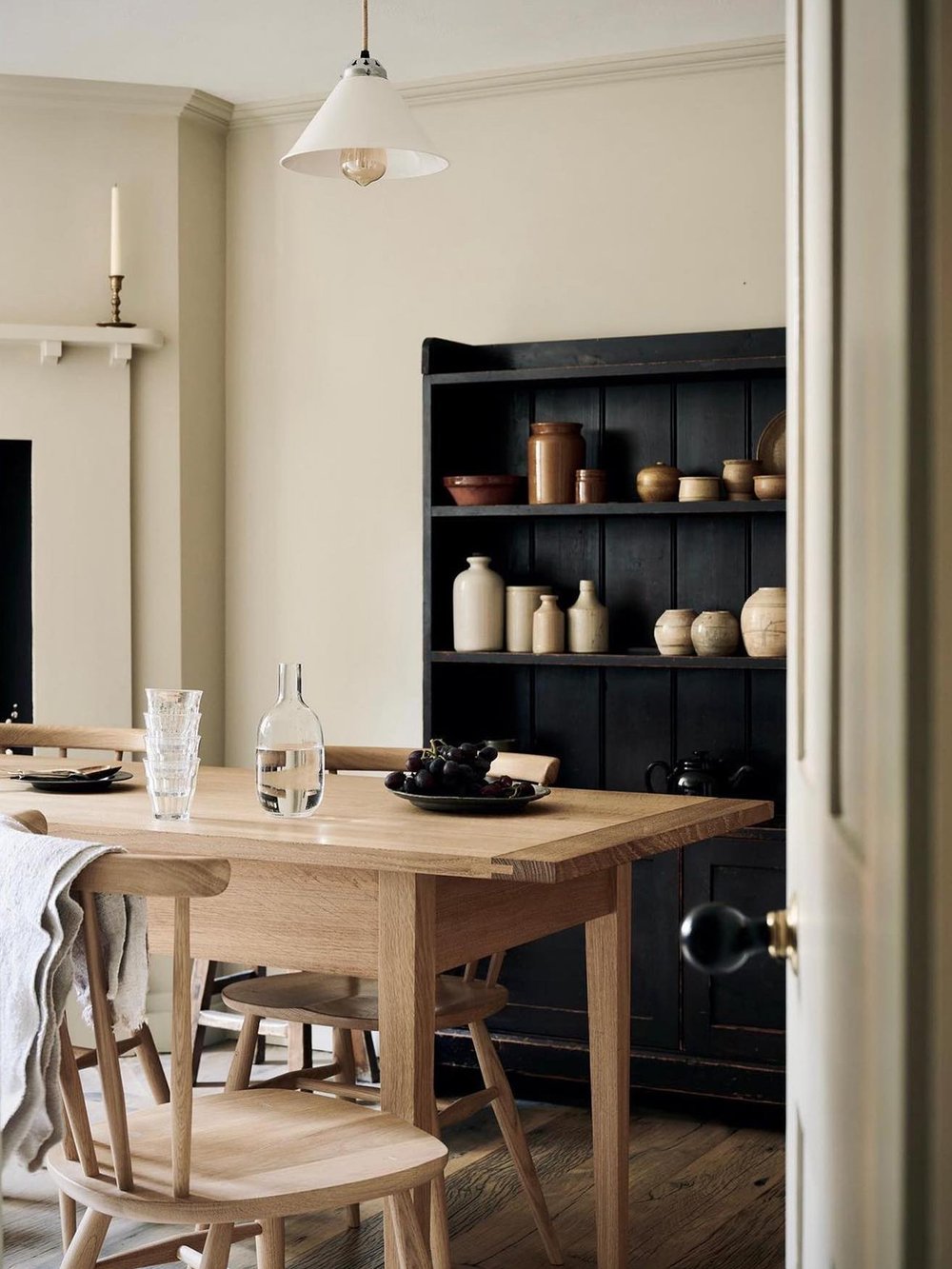
Blue Zone lifestyle habits can be effectively incorporated into the home. Mindful kitchen design is one step towards developing healthy eating practices. Designating an area within the home for relaxation is also important; meditative spaces can be achieved through removing visual clutter. Physical movement is an essential part of healthy habit-forming and, in the absence of a Greek mountaintop upon which to ramble, an area within the home where you can exercise freely will yield many health benefits.
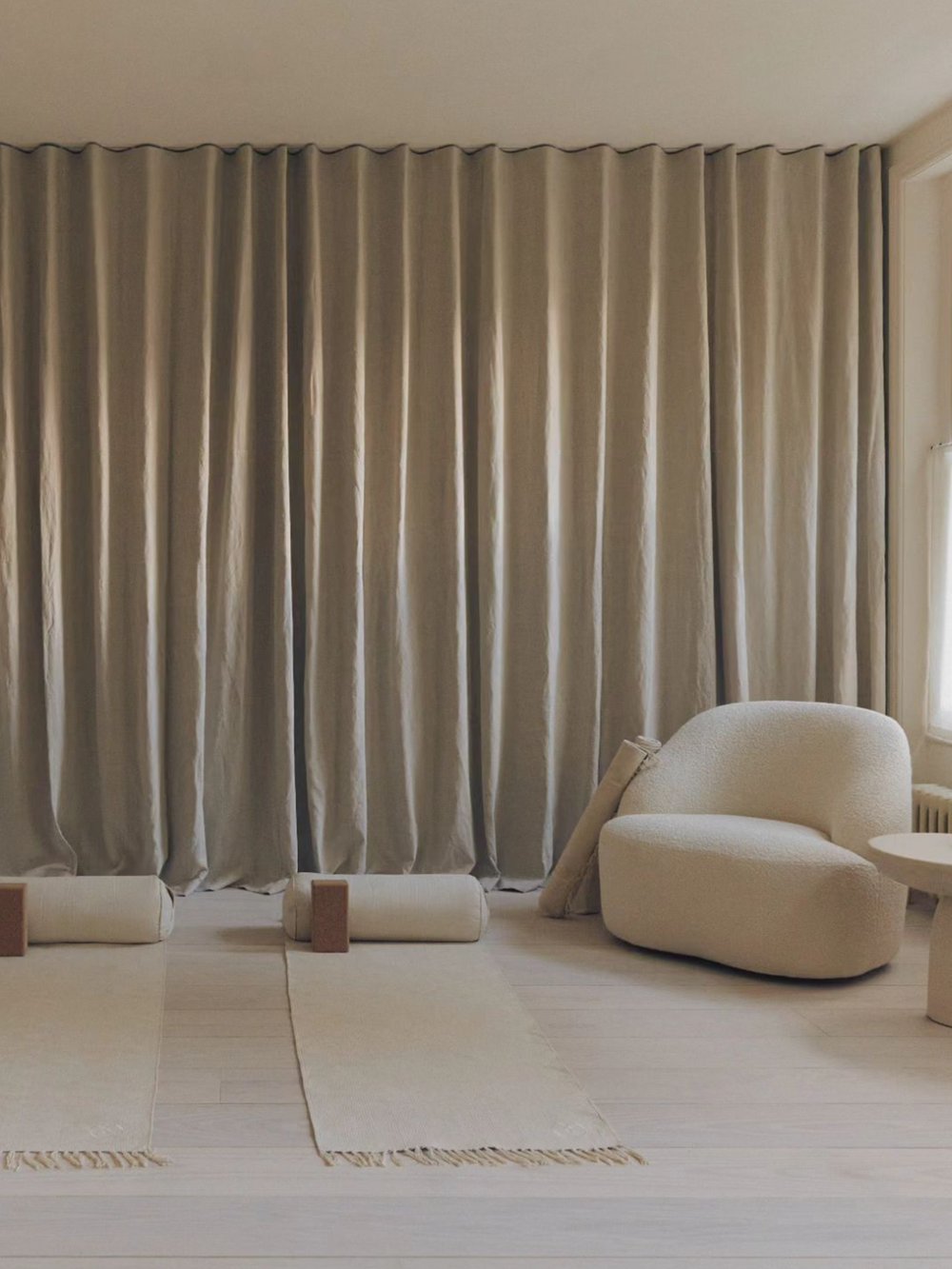
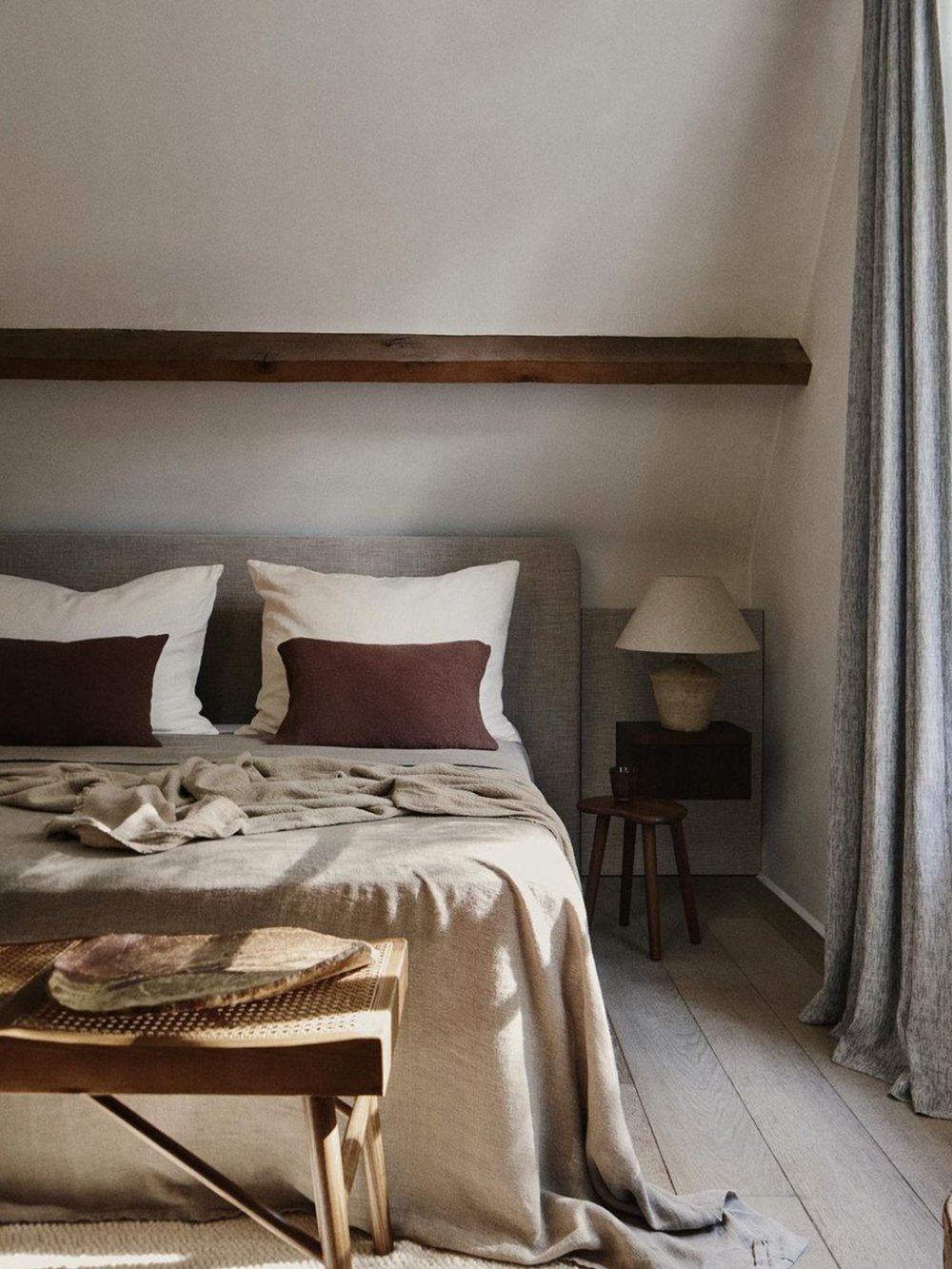
Photography: Blue Zones, House of Grey, Michael Sinclair, deVOL, Colin King, Yago Castromil
Image: 'Power 9' courtesy of Blue Zones

4 min read
WLLW dives into designing the kitchen, crafting a space for health and connection.
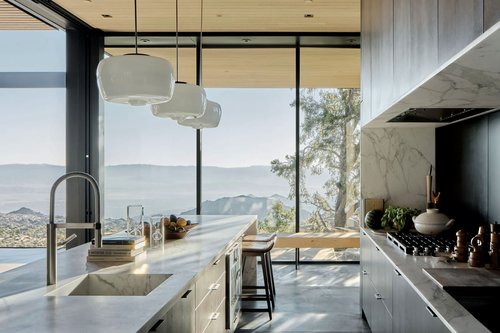
7 min read
WLLW continues our kitchen series by focusing on functional design that can positively impact our overall health.